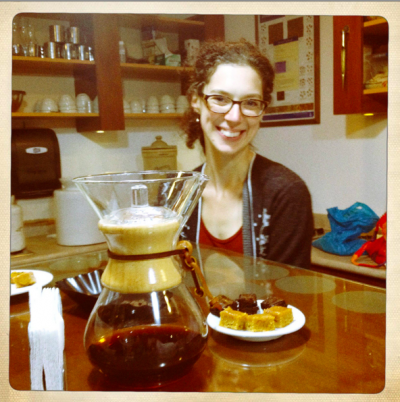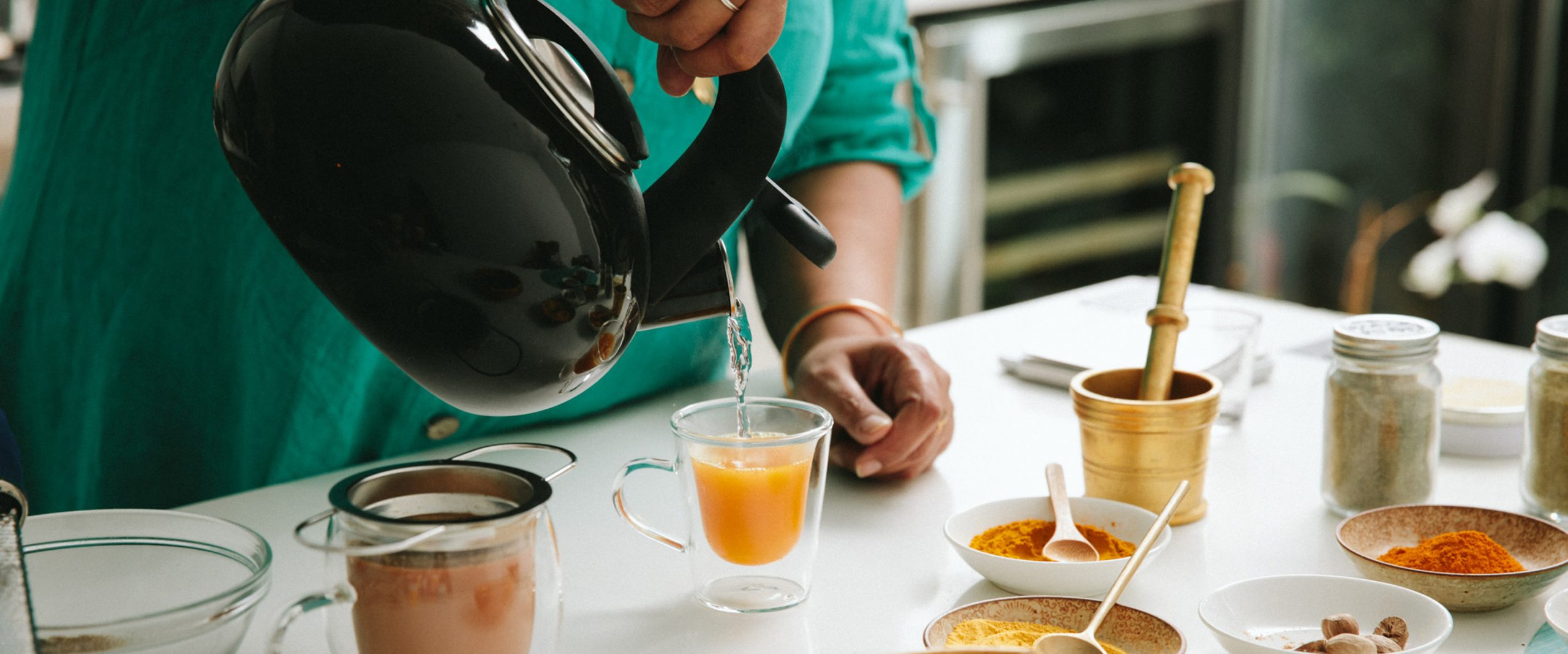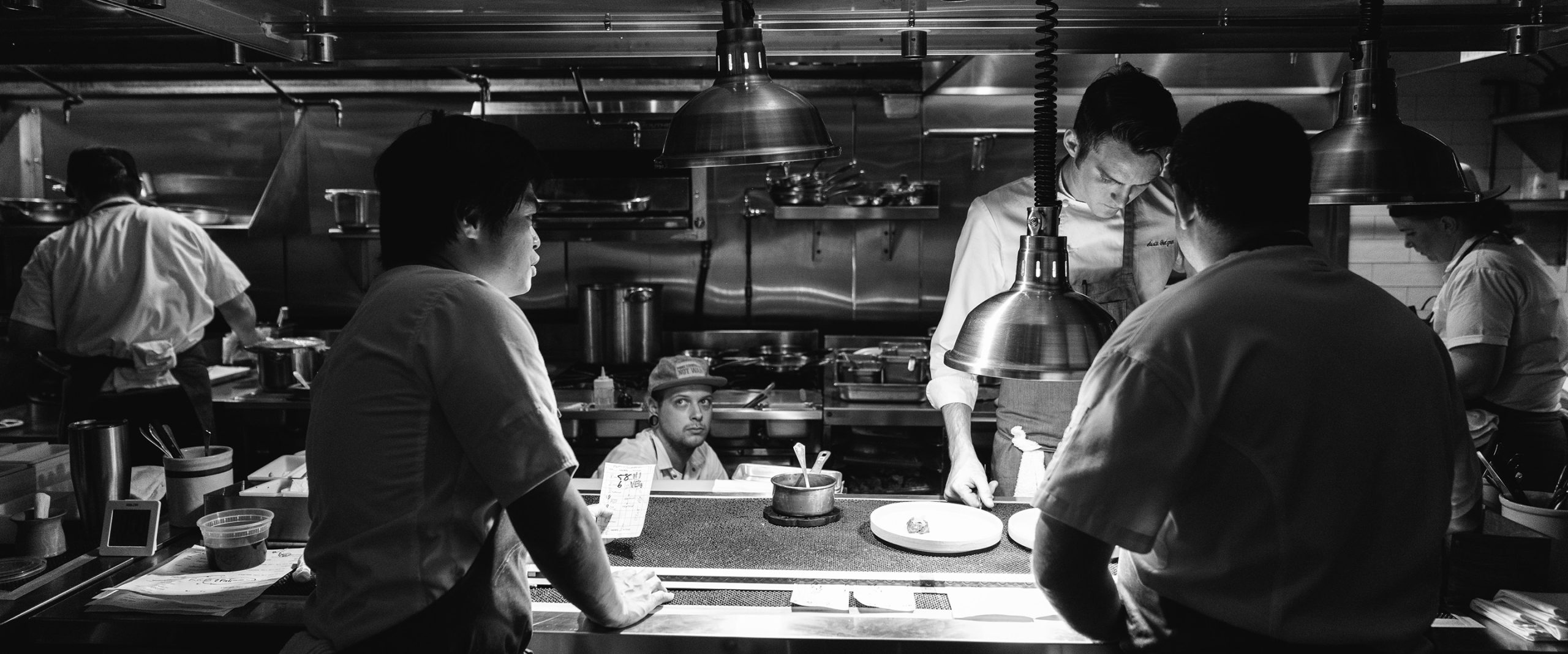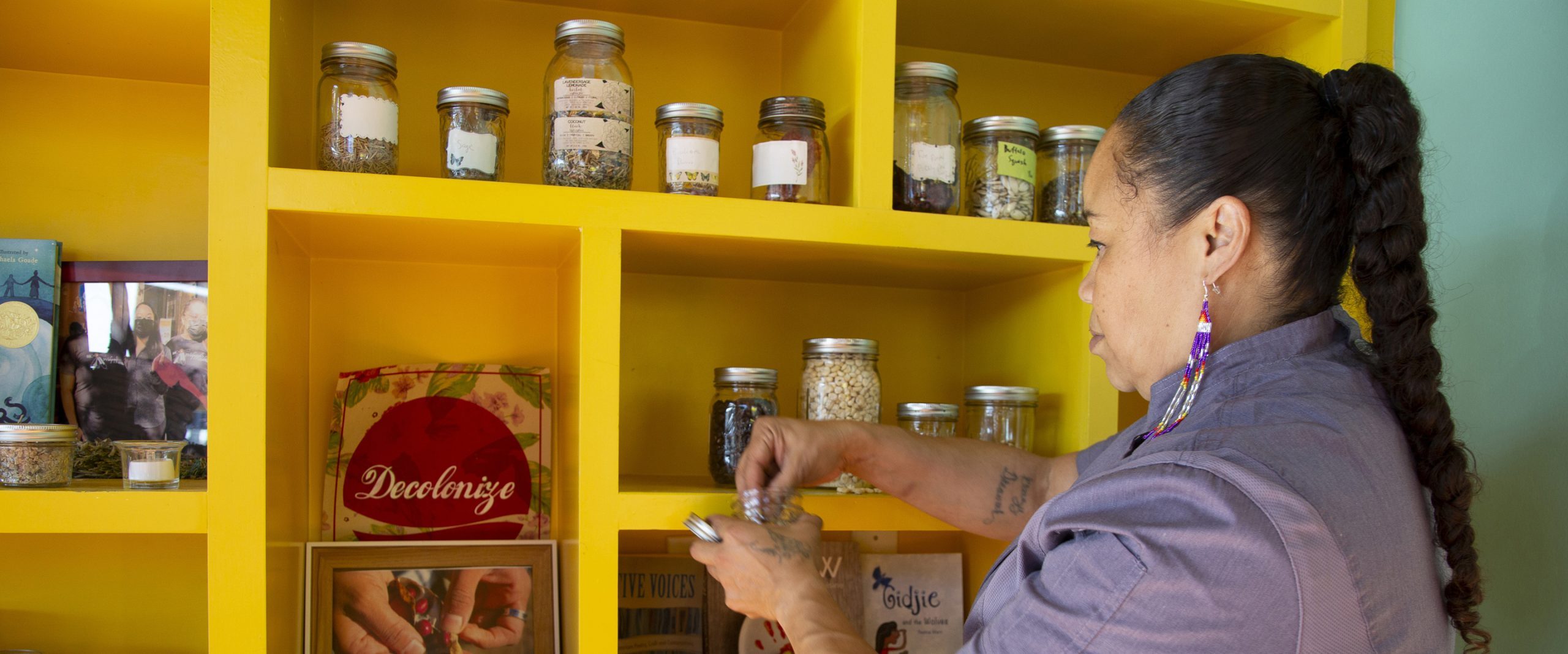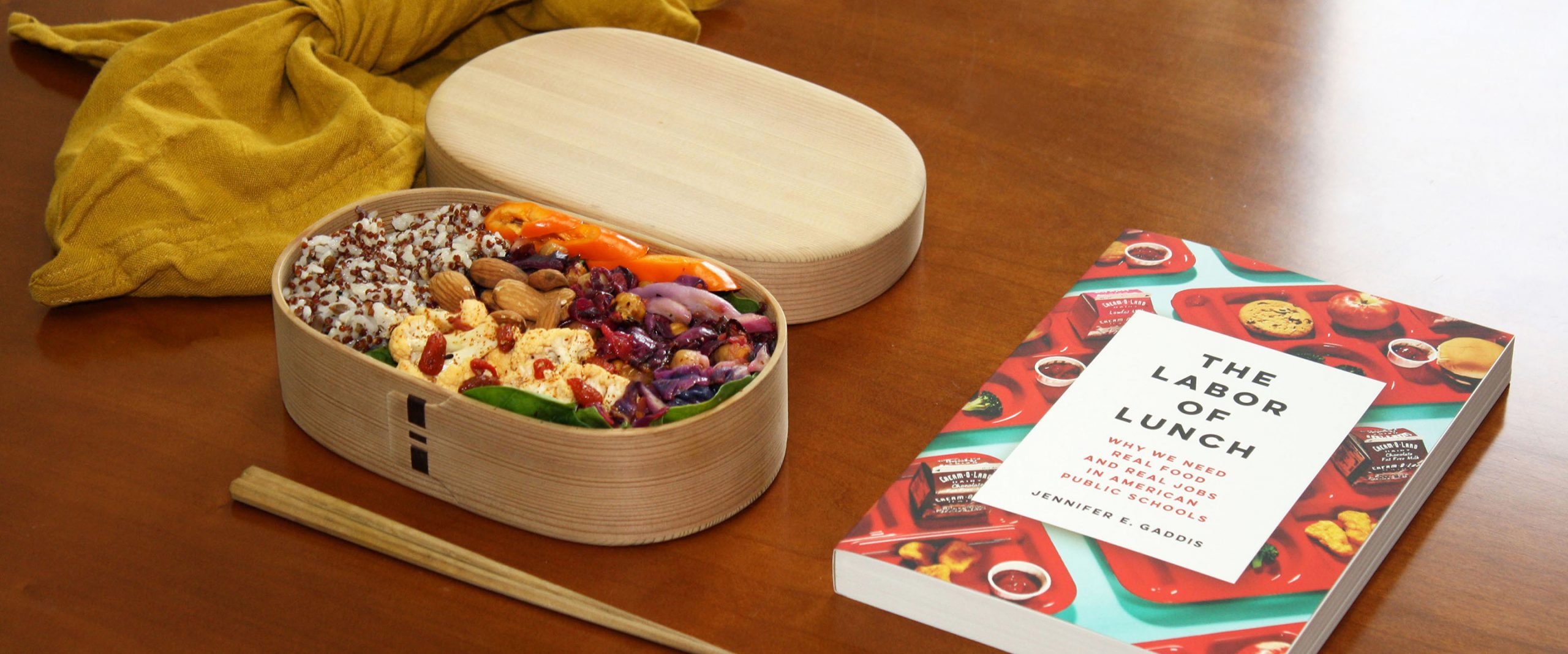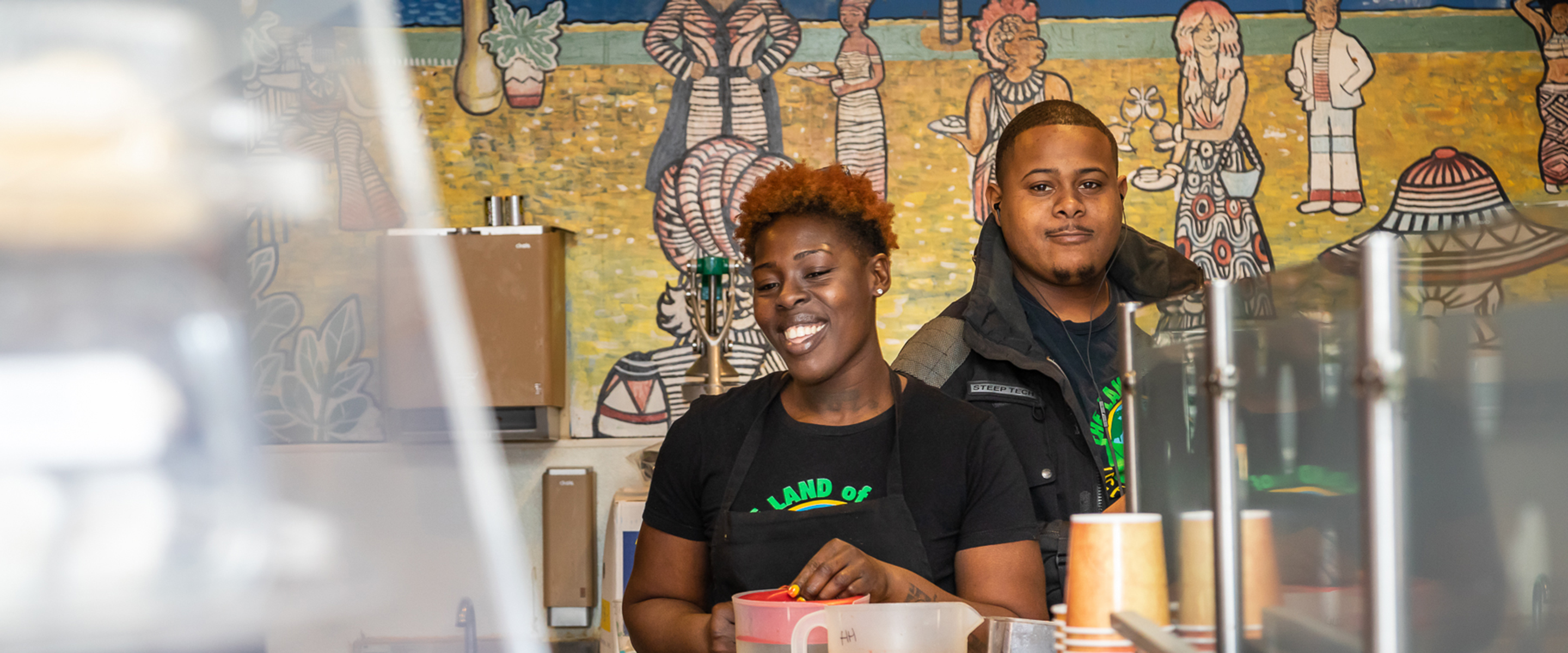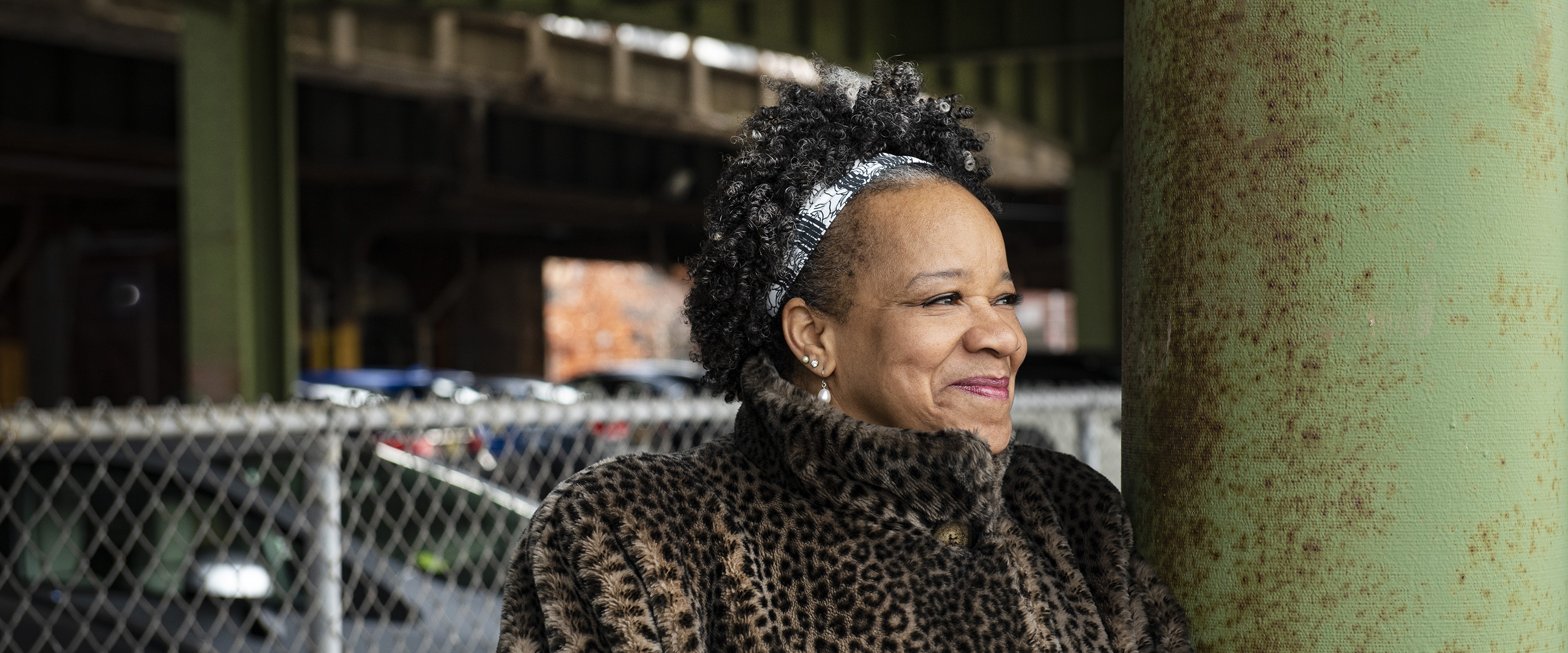Those of us who sip our imported coffees from the metropolitan locales of the United States might not take the time to think about where the coffee beans have traveled from. In fact, we might just assume that the country of origin is brimming with an abundance of the product, and that everyone there must take a great cup of local coffee for granted. But Hannah's story reminds us that the focus on exportation must be shifted so that the people who grow and produce those special coffee beans can enjoy them with their neighbors. Which is just what happens at Hannah and David's coffee shop in Lima, Peru. If your Spanish is less rusty than ours, check out Cafe Bisetti and some of its press.
When did you know that you wanted to work in food?
It snuck up on me. As a kid I knew that my ideal job was "making things", since I'd always had boundless energy for creative projects. It was during high school that my creative impulses spilled over into the realm of sweets, where I baked cookies to share with friends. I grew more comfortable in the kitchen during my final years at Vassar College, while living cooperatively with housemates, sharing household responsibilities and taking joy in the process of creating meals together.
In 2007, the year I finished college with a degree in anthropology, David (my partner) proposed the idea of opening a tiny espresso bar in his hometown Lima, Perú. My response: "Ok, I'll make the cookies!" It wasn't planned as a career move, but 5 years later, I confess that I really love working in the food/coffee business. I've become an avid food blog, cookbook and food literature reader, which connects me to a whole world of bakers, cooks, farmers and food lovers. What I love most about this job is that we never stop learning, exploring and sharing.
How did you get your current good food job?
I created it! Our primary goal was to serve the best espresso in Lima in our tiny little shop, Arábica espresso bar, which we opened in 2008. At that time, there was hardly any place to get a decent cup of coffee, as most high quality beans grown in Perú were immediately destined for exportation. We ventured to snag some of those top quality beans, and give them proper treatment right here in Lima. I wanted to offer a nice selection of yummy pastries to go along with that ? preferably home-style, rustic, and most importantly, high quality. While David threw himself body and soul into the world of specialty Peruvian coffees, I spent several delicious months testing recipes on our friends and family. I was determined to offer tasty alternatives to the usual Peruvian pastries by combining flavors that were comforting to me and yet interesting to the Peruvian palate. Our first menu included homestyle chocolate chip cookies, carrot cake, lime bars, passion fruit bars, muffins and a few pies, which I baked every morning at home and rushed over to the shop where I waited tables in the evening. Five years later, business has evolved considerably as the coffee culture in Lima has boomed. Last year we opened our second and larger shop, the Tostaduría Bisetti (Bisetti Roasters), which houses a fully equipped coffee laboratory where we roast and cup daily. Our roasted coffee (www.cafebisetti.com) goes out to over a dozen terrific restaurants and cafés in Perú. Meanwhile, Arábica has a wide and loyal following, where I lead a small staff who produce all the handmade pastries that we serve in both of our shops.
How did your previous work or life experience prepare you for a good food job?
I've always thrived when surrounded by creative projects, and our kitchen is like an artist's studio ? a little messy at times, but brimming with positive energy and creative ideas. My college experiences with cooperative living were key in instilling a profound joy in a shared kitchen and work space.
What was the greatest obstacle you had to overcome in pursuing your Good Food Job dream?
While my degree in anthropology prepared me to be sensitive and adaptable in different cultural situations, it didn't at all prepare me for all the responsibilities of running a rapidly growing business. The first year was really tough. I bit off more than I could chew, I balked at taking a leadership role, and I was doing everything in Spanish (a language I was still learning at the time) to boot! But I couldn't bear to give up, and with David working incredibly hard by my side, we pushed on through. It has been an exhilarating ride, with plenty of ups and downs. The greatest motivating factor for me is when I see that the very people we've trained as baristi or bakers have found a line of work that they truly value and enjoy, and they in turn transmit that value to our customers. Furthermore, our baristi and customers most often connect back to the very farmer who grew the coffee beans that we work so hard to roast and prepare.
What can you identify as the greatest opportunities in food right now?
In Peru I see a growing demand for specialty products, such as coffees from origin, artisan beers, handmade whole-grain breads, gluten free or vegan pastries, etc, whereas a few years ago these sorts of products were hard to come by. In general, David and I both firmly believe if you create something with utmost care and you KNOW that what you are offering is of the highest quality, it's not hard to convince others to agree with you.
If you could be compensated for your work with something other than money, what would it be?
Airline miles to bring faraway friends and family to visit us!









